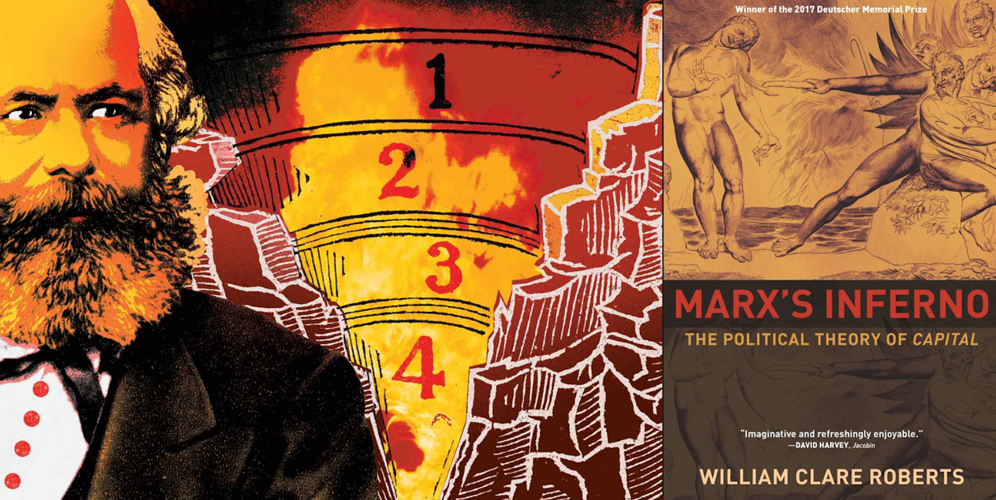Descent Into the Inferno: The Politics of Marx’s Capital
Marx’s Inferno, by William Clare Roberts, reconstructs the major arguments of volume I of Karl Marx’s Capital and inaugurates a completely new reading. His argument is that Capital was primarily a careful engagement with the motives and aims of the workers’ movement of the mid-19th century. Understood in this light, Capital emerges as a profound work of political theory. For Roberts, Capital was ingeniously modeled on Dante’s Inferno, with Marx in the role of the proletariat’s Virgil guiding us down to the secret depths of capitalism’s “social Hell.”


